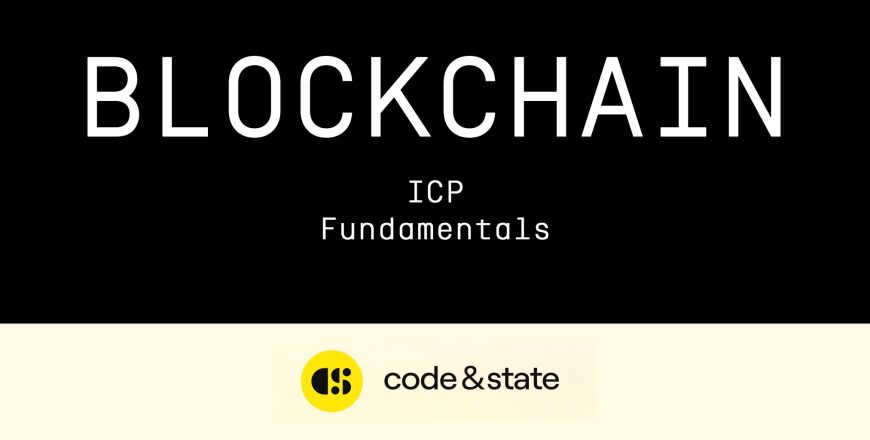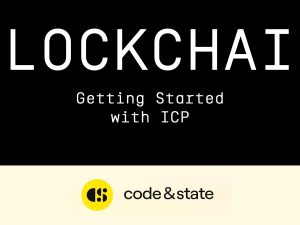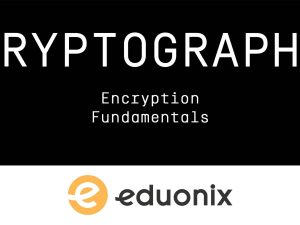ICP Fundamentals
- Description
- Curriculum
- Reviews
The Internet Computer Protocol (ICP) is revolutionizing the way applications and smart contracts are deployed on the blockchain. The ICP Fundamentals course introduces you to the decentralized cloud, smart contract execution, and Web3 development on the Internet Computer network.
Learn how ICP differs from traditional blockchains, its advantages in scalability, security, and interoperability, and how developers can build decentralized applications (dApps) with Canister smart contracts.
Ideal for developers, blockchain enthusiasts, and Web3 innovators, this course provides a hands-on approach to understanding ICP architecture, tokenomics, governance, and real-world use cases.
📌 Key Takeaways:
✅ Learn how ICP enables a fully decentralized web
✅ Understand the architecture, governance, and tokenomics of ICP
✅ Build and deploy smart contracts using Motoko & Rust
✅ Explore real-world dApps powered by ICP
✅ Gain hands-on experience with Canister smart contracts and the DFINITY ecosystem
Start exploring next-generation blockchain technology with ICP today!
-
1Fundamental Concepts15:00
The Internet Computer is a platform that hosts a large number of applications, all of those applications run smoothly within special containers called canisters.
-
2Programming Concepts15:00This lesson is locked because you haven't completed the previous one yet. Finish the previous lesson to unlock this one.
The Motoko language places a strong emphasis on types and is more strict in enforcing them compared to other general-purpose languages like JavaScript or Python. This strictness serves a purpose, as it helps prevent errors and issues.
-
3Primitives15:00This lesson is locked because you haven't completed the previous one yet. Finish the previous lesson to unlock this one.
Primitive types are fundamental core data types that are not composed of more fundamental types. Primitive types are all the types that do not need to be imported before they can be used in type annotation.
-
4Candid15:00This lesson is locked because you haven't completed the previous one yet. Finish the previous lesson to unlock this one.
Candid is an IDL describing the public services deployed in canisters on the Internet Computer. The Candid interface allows inter-operation between services, and between services and frontends, independently of the programming language used.
-
5Modules12:00This lesson is locked because you haven't completed the previous one yet. Finish the previous lesson to unlock this one.
Modules are collections of named variables, functions, and types, each designed for a specific purpose. They help us organize our code efficiently. Typically, a module resides in its own file, allowing us to import its contents into other Motoko files as needed.
-
6Structures20:00This lesson is locked because you haven't completed the previous one yet. Finish the previous lesson to unlock this one.
In Motoko, arrays have a fixed size that is determined when the array is created. This means that the size cannot be increased later on. To add a new element to an array, a new array must be created and all of the existing elements must be transferred to the new array manually.
-
7Non-Primitives15:00This lesson is locked because you haven't completed the previous one yet. Finish the previous lesson to unlock this one.
Similar to other variables in Motoko, objects can be mutable or immutable. The object we've just defined is immutable, once the fields have been assigned a value they cannot be modified.
-
8Advanced Types20:00This lesson is locked because you haven't completed the previous one yet. Finish the previous lesson to unlock this one.
Motoko throws an error because null is not of type Nat. To indicate that a function may return either a Nat value or null, we need a way to express that the function's return type can be one of two possibilities.
-
9Error Handling20:00This lesson is locked because you haven't completed the previous one yet. Finish the previous lesson to unlock this one.
In Motoko, error handling can be a bit confusing, especially if you are used to error handling in other programming languages.
-
10Digital Identity20:00This lesson is locked because you haven't completed the previous one yet. Finish the previous lesson to unlock this one.
-
11Intercanister Calls15:00This lesson is locked because you haven't completed the previous one yet. Finish the previous lesson to unlock this one.
To achieve the vision of the Internet Computer, services (i.e canisters) needs to be able to call each other and run in an interoperable way. This capability is achieved through inter-canister calls. In this lesson, we will see how we can realize such calls and the potential issues to avoid.
-
12Upgrading a Canister20:00This lesson is locked because you haven't completed the previous one yet. Finish the previous lesson to unlock this one.
When a canister is upgraded, the state is lost by default. This means all data application data will be lost, unless it's handled to persist when the canister is upgraded.
-
13Serving a Website20:00This lesson is locked because you haven't completed the previous one yet. Finish the previous lesson to unlock this one.
Canisters are hosted and executed by nodes that participate in the IC consensus However, those nodes are not directly accessible by end users.
-
14Unlocking a DAO20:00This lesson is locked because you haven't completed the previous one yet. Finish the previous lesson to unlock this one.
Throughout history, humans have found different creative ways to organize in social groups and structures. They have done so for different reasons such as safety, support, social identity, work, power or even economics.
-
15Understand the Network Nervous System20:00This lesson is locked because you haven't completed the previous one yet. Finish the previous lesson to unlock this one.
The most developed DAO operating on the IC is the one that manages the network itself. This DAO is called the Network Nervous System and it is responsible for making decisions about the future of the network, coordinating various parties, and arranging the network's structure.

-
Getting Started with ICP
-
What is Prerequisite coursesA prerequisite is a specific course that you must complete before you can take another course at the next grade level.
3D Vision Agriculture AI Analytics Artificial Intelligence Authentication Automation Automotive Blockchain Computer Vision Cryptocurrency CV Cybersecurity Data Science Depth Perception Development Digital Identity Energy Sector Ethics FinTech Healthcare Image Processing Insurance IoT Machine Learning ML Motion Analysis Natural Language Processing Neural Networks NFT NLP NN Object Detection Object Recognition Python Real Estate Reinforcement Learning RL Smart Cities Smart Contracts Supply Chain Management Transparency Trust Voting Systems
Search
Working hours
| Monday | 9:30 am - 6.00 pm |
| Tuesday | 9:30 am - 6.00 pm |
| Wednesday | 9:30 am - 6.00 pm |
| Thursday | 9:30 am - 6.00 pm |
| Friday | 9:30 am - 5.00 pm |
| Saturday | Closed |
| Sunday | Closed |




